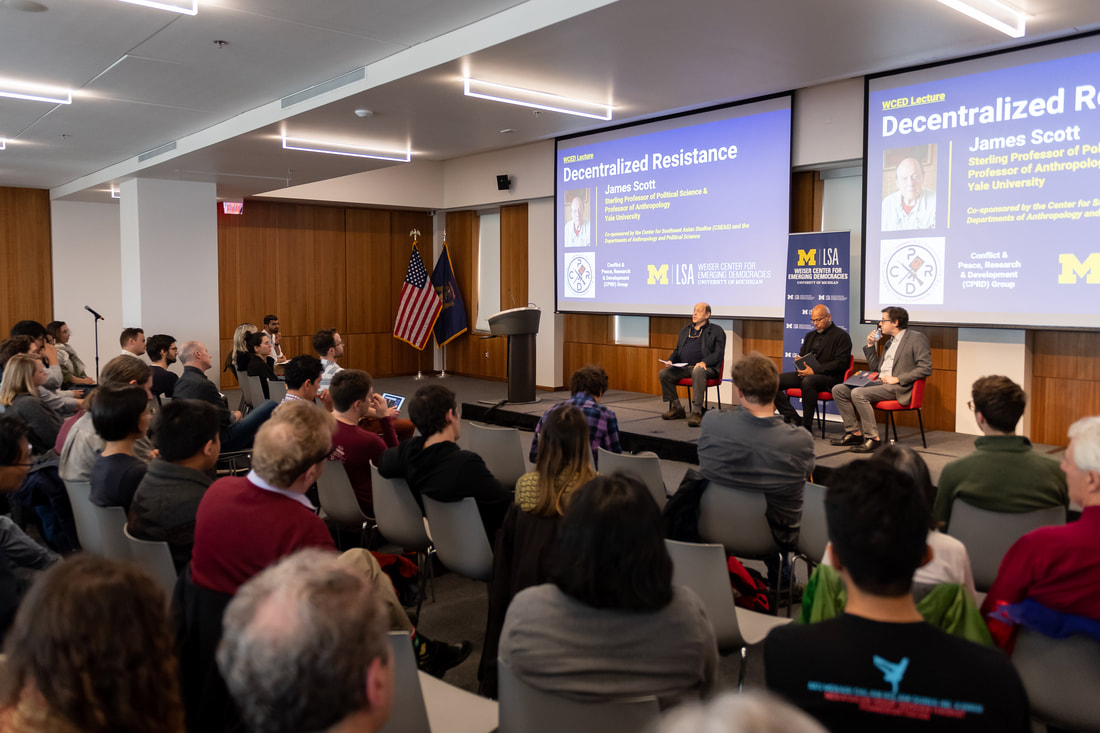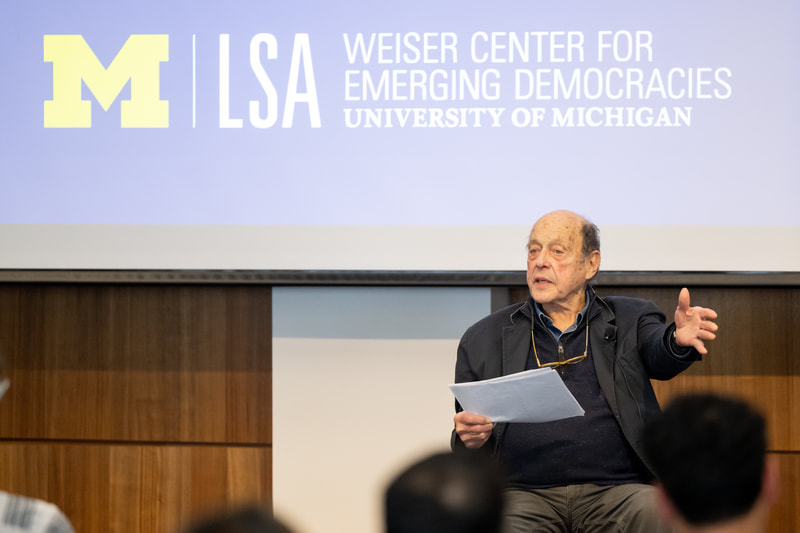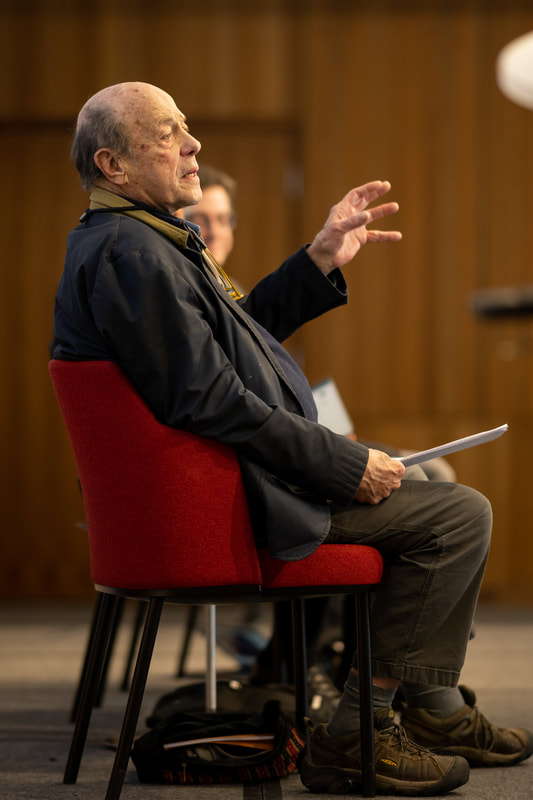A Week of Seeing Like a Scott
Prof. Scott is the Sterling Professor of Political Science and co-Director of the Agrarian Studies Program and (as he says very quickly) a mediocre farmer. He is a Fellow of the American Academy of Arts and Sciences, and has held grants from the National Science Foundation, the National Endowment for the Humanities, as well as the Agrarian Studies program the Guggenheim Foundation. Professor Scott's work has had a tremendous influence on critical thinking about resistance, rebellion, state-formation, state-maintenance as well as how to be a scholar who is concerned with socio-political justice - among other areas. The author of a classic series of incredibly insightful and influential books, The New York Times described his work as "highly influential and idiosyncratic" noting that “he’s...the kind of big thinker (and stylish writer)...who has all but disappeared in his field: the last of a breed of wide-angled 20th-Century social theorists, going back to Max Weber, to marry the insights of social science to the broad sweep of history” (New York Times, 2012).To celebrate Prof. Scott and his work as well to engage with him in a sustained and varied manner, we bring him to the University of Michigan for a week of conversation, two lectures, some meals, some coffee and most likely a "Mindwalk" or two.
Decentralized Resistance
The premise is that, both historically and today, most acts of resistance to systems of power, hierarchy, and exploitation do not take the form of social movements with names, official-holders, flags, rules of order, headquarters, and initials (e.g., NAACP, ACLU, BLM, AfD). There are at least two reasons, I propose, that help explain this fact. First, historically open resistance for most of the world’s population, living in undemocratic settings, is dangerous, even fatal. When it occurs, it is an act of desperation. Second, even in relatively permissive political settings, the transaction costs of creating formal organizations are often so great that smaller, informal, and individual acts of resistance are simpler to pull off and often safer as well. The aggregation of thousands of such acts of resistance (e.g. desertion, squatting, poaching) may, over time, achieve more at a defacto level than open, publicly-declared resistance. Thus, what we will be examining is what might be called “everyday resistance.” We will assess whether the term “resistance” even makes sense in this context; we will examine instances of it historically; we will consider both its objectives and the likelihood that they can be achieved in this manner; and we will ask what the consequences for political life and social organization such techniques imply.
A Retrospective Roundtable on the Life and Work of James Scott
A retrospective roundtable on the Professional, Personal and Intellectual influence of Professor Scott Retrospective in ISR Room 1430 from 2:30-4pm. This will involve Arun Agrawal (Natural Resources and Environment), Christian Davenport (Political Science and Public Policy), Jaeeun Kim (Sociology), Mike McGovern (Anthropology) and James Scott (Political Science and Anthropology)
In Praise of Floods
An ecological and social hymn to the good work floods do for non-humans and for Homo sapiens alike. An examination of the “flood pulse” as a river’s lungs and the nutrition it provides to all riverine creatures. Virtually all “civilizations’ are dependent on the ever-renewed fertility of floodplain soils. Human engineering has radically simplified river hydrology, the way taxidermy or amputations might destroy a living being, so that rivers can be navigation canals, water storage, sewage conduits, hydroelectric sites, irrigation reservoirs, and flood free. Disturbance ecology teaches us, on the contrary, how the “edge environments’ and “eco-tones” created by ‘naturally occurring floods and fires promote bio-diversity. The simplification of river hydrology has set the stage for “iatrogenic” (illness caused by previous ‘treatment’) river ailments including massive floods.



